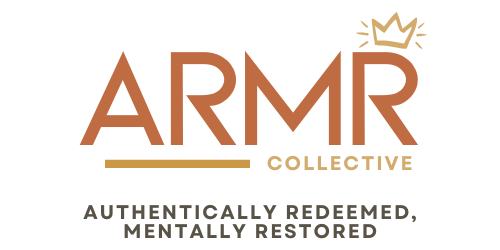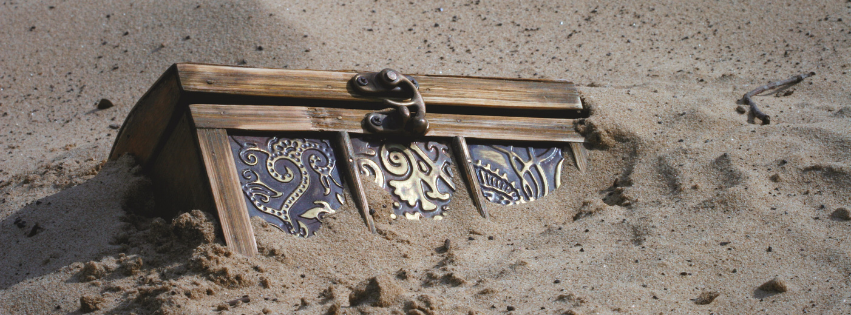Doomscrolling. We’ve all been there. Sucked into the black hole of TikTok, Instagram, sending reel after reel to our friends. Before we know it, it’s been hours and we haven’t moved an inch.
This probably isn’t the scenario that came to mind when Solomon wrote about sloth in Proverbs, but it still applies. While the Bible doesn’t explicitly give us an exact list of seven “deadly” sins, early church leaders identified and categorized the most common human struggles throughout Scripture and dubbed them the “seven deadly sins”. We’re going to explore how these ancient patterns show up in our modern lives, starting with modern sloth.
Sloth isn’t just about being lazy. It’s about staying still.
How Sloth Has Evolved
The History of Sloth
When we think of the sin of sloth, we may think of physical laziness, avoiding work, wanting to do nothing, etc. Historically, this is how sloth started out. In medieval times, sloth literally meant not working the fields and avoiding physical labor. In religious traditions, sloth meant avoiding prayer/worship duties or physical laziness in religious duties. During the industrial era, not showing up to work or physically avoiding responsibilities were thought of as sloth. So, how did the definition of sloth migrate to where it is today?
The Cultural Shift
Technology changed everything. We can be “busy” while being completely stagnant. Social media gives us an illusion of activity and connection while avoiding real engagement. Being busy doesn’t necessarily mean we’re being productive toward our callings. And in modern work culture, it’s easier to coast through jobs without really contributing. Instant gratification culture makes us want to avoid anything that requires real, sustained effort. And the growth of mental health awareness, a very positive thing, can sometimes hinder us and become an excuse to avoid growth. It starts to feel easier to stay comfortable instead of pursuing our God-given purpose.
Modern Sloth in Action
Manifestations of modern sloth show up internally and can be externally rewarded.
Internal Patterns – What We Do
The internal patterns of modern sloth can manifest as spiritual passivity. We let others do the hard work of ministry and service. Maybe we tell ourselves we’re not qualified or maybe it’s just easier to hand it off to someone else. We might play it safe with our spiritual gifts. Spiritual growth avoidance causes us to stay in our spiritual comfort zones instead of growing in weak areas or not pursuing a deeper relationship with God because it requires change.
We settle for “good enough” careers instead of pursuing our callings. We stay in jobs that don’t use our gifts and choose professional conformity over authentic contribution. Maybe we get trapped in a perfectionist mindset, endlessly gathering all relevant information before making a move. But we can never gather enough information so we never make a move.
Digital avoidance keeps us doom-scrolling instead of taking action. We spend hours consuming instead of contributing. We get stuck in the comparison trap, longing for the artificial lives behind our blue-lit screens.
Relationship sloth avoids difficult conversations that could heal relationships. We avoid processing our trauma and emotions and bury them instead. When conflict arises, we refuse to do the inner work and stay surface-level. We might keep friendships casual to avoid vulnerability and real commitment in relationships.
But here’s the thing—we don’t develop these patterns on our own.
When Society Rewards Playing Small
Workplace and Family Pressure
What’s crazy is that society, whether knowingly or unknowingly, enables these behaviors by rewarding us. You’ll get a pat on the back for a “don’t rock the boat” mentality in the workplace. You might get promoted for staying quiet about problems instead of speaking up. You could be labeled as “easy to work with” when you avoid difficult conversations, and social groups might reward you for keeping things light and surface-level.
Society seems to value professional conformity over authentic contribution.
“Playing it safe” gets praised as “wisdom”. Families might celebrate “secure” job choices over pursuing your calling. Society calls avoiding risk “being responsible” when it’s often just fear keeping us from our callings. We’re taught that staying small is mature, but stepping into our gifts and wanting more is “unrealistic”.
How We Learn to Hide Our Gifts as Children
Even as kids, we’re taught to hide our uniqueness. Schools seem to reward conformity over creativity. The sensitive kid is told to “toughen up”. The dreamy artist gets redirected toward “practical” subjects. And neurodivergent children learn their natural wiring is a “problem” to fix rather than a gift to develop. By adulthood, we’ve internalized the message that standing out is dangerous.
Digital Culture Rewards Consumption
Social media rewards mindless scrolling over meaningful contributions. We’re encouraged to be consumers, not creators or change-makers. It’s easier to critique others’ work than risk creating something yourself. Comparison kills our courage to try new things.
Society has made spiritual and emotional cowardice look like virtue. We call avoidance “wisdom,” passivity “peace,” and playing small “being practical.” God calls us to move, but we’re too scared to be anything but small. Society gets comfortable mediocrity instead of transformative gifts. The movers and shakers of the world are told to sit down and be practical.
How did we get here?!
The Hidden Cost
This modern shift of sloth makes it so much harder to recognize sloth in ourselves. And in turn, the mental health consequences of modern sloth are less visible but even more damaging. In the past, if you didn’t work, you’d starve or lose your home. There were immediate, visible consequences that forced change. But now, you can appear functional while being completely stagnant internally.
The consequences slowly build over time. This can look like depression from unfulfilled potential. The burden of unused gifts weighs down your shoulders. Anxiety floods our minds with “am I doing what I’m supposed to be doing?” Chronic regret and “what if” thinking makes us look back on missed opportunities, wishing we had moved. Life starts to feel empty without a calling; we’re refusing our purpose, choosing to stay stagnant. We’re filled with shame, knowing we could do more but choosing not to. The internal consequences of sloth can be more damaging to our overall wellbeing than physical hardship. But they’re harder to recognize and address because they develop so slowly over time. You may just now be realizing the grip modern sloth has on your mental health—I know I did as I worked on this post.
But there is hope. Let’s go to the Word and see what it says about sloth.
Biblical Response: God’s View of Our Gifts
In the Parable of the Talents, three servants are given a varied number of talents. One servant received five talents, traded with them, and ended up with ten talents total. Another servant received two talents, traded, and ended up with four talents. The last servant received one talent, but instead of trading with it to get more, he buried it instead. When the master came back to see what the servants did with their talents, he praised the two servants who came up with more talents. But the servant who buried his talent had it taken away and given to someone who would use it (Matthew 25:14-30).
The same goes for us. God gives us gifts and talents to use while we’re here on earth to bring others to Jesus. Who are we to bury our unique callings and trudge through life with our heads down? 1 Corinthians 1:27 says, “But God chose what is foolish in the world to shame the wise; God chose what is weak in the world to shame the strong.” God intentionally chooses people who don’t fit the world’s “successful” mold. The things society calls “foolish” or “unrealistic” are often exactly what God wants to use. Your “weird” gifts, unconventional calling, or different way of thinking aren’t liabilities—they’re strategic differences. Your specific gifts could be what pushes the kingdom forward.
We already know we live in a fallen world, where things are backwards. Is it any surprise that the devil uses the world to smother our gifts to keep us stagnant and beat us down, encouraging us to stay the same so we don’t further the kingdom and be who God calls us to be?
What the world calls “unrealistic”, God might call “exactly what I need”.
Breaking Free from Sloth
Start Small, Build Courage
How do we break free from the sloth taking over our lives? How can we escape it when the world rewards us for doing nothing? We can take a step back and think, “what gifts do I have that I’m not developing?” If you don’t know your spiritual gifts, take a spiritual gift test online. Start with finding out what gifts you’ve been given to use. And then don’t bury them. Use them. It doesn’t have to be anything extraordinary at first. Start with something small. Take one tiny risk this week and see the positive impact it has. Start building your courage muscles, and get your mind to a place of action rather than apathy.
I could go off on a tangent about burying my writing skill and ignoring my calling for years (hello, ARMR Collective!). I’ve written about it before, but I thought I was going to be a fiction writer for most of my life. It wasn’t until I finally gave in and started moving that ARMR Collective was born. I’m proud to say that as of this post, I’ve been posting every single week for 8 months now!
When Mental Health Makes It Harder
I know making a move can be especially daunting if you’re in the midst of struggling with a mental health challenge. I understand. I’ve been there when you physically can’t get yourself out of bed even to brush your teeth or turn on the lights. Just start with the tiniest thing like putting on your socks or eating a granola bar. Don’t focus on what you haven’t yet done, but what you are yet to do.
Find Your Community
Connect with people to help hold you compassionately accountable and build a safe space for authenticity. Find a community that fosters growth in your talents and empowers your calling.
It’s never too late to step into your calling. Our God is so patient; He waited for me for thirty years, and there’s so much more I’ve yet to do. You’re never alone in this journey.
We’re in this together—no more burying gifts, no more playing small.



